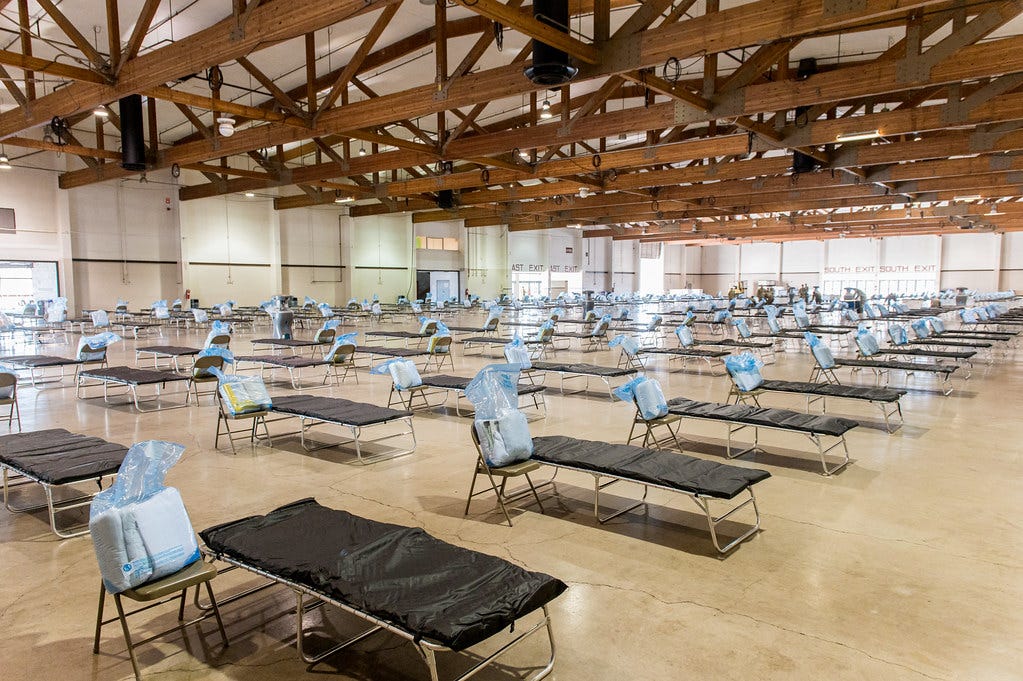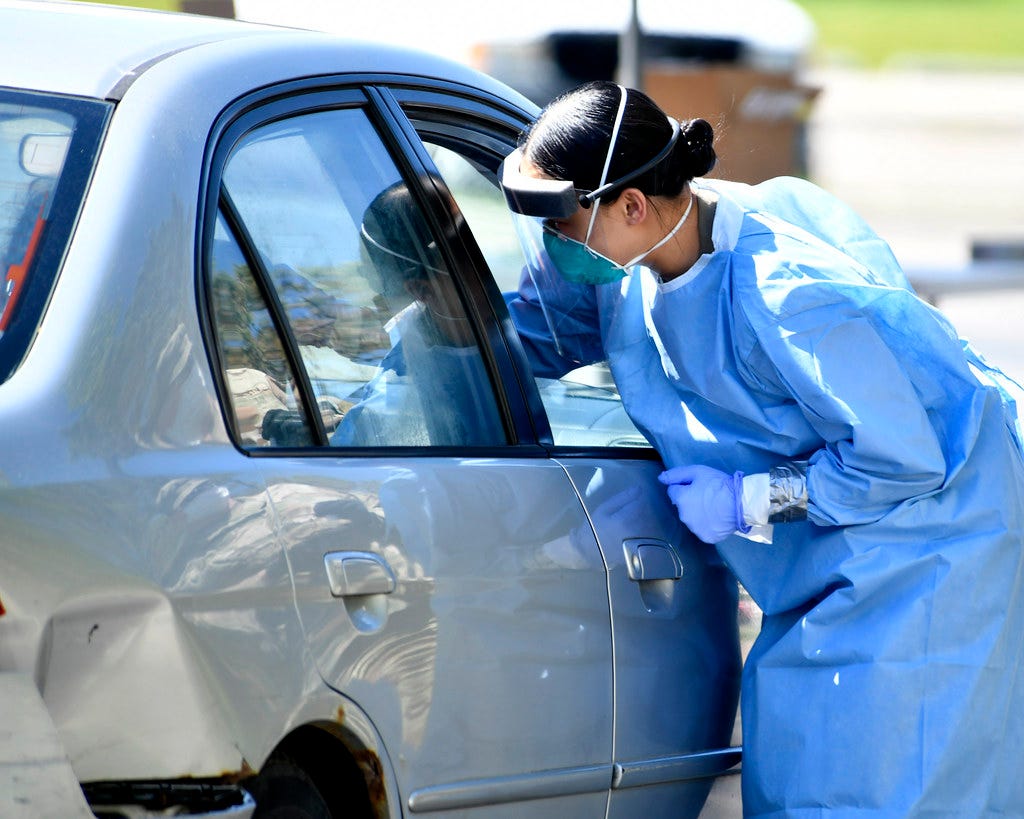Adam Davis: Attention problems
The size, scope, and scale of pandemic-induced losses deserve our full attention.
Editor’s note: This week will include a number of pieces reflecting on last week’s unprecedent events. Those events demand all of us to reflect on what it means to participate in the public sphere, to assess our social contract with one another and our government, and to examine how to move forward while not neglecting the past.
Please use our new comments feature to share your two cents (surely they are worth a dime).
To the post!
Adam Davis works with Oregon Humanities to get people thinking and talking together, and he used to lead backcountry trail crews with the US Forest Service.

For the last several days (weeks, months), it has been exceedingly difficult to look away from the events in Washington D.C., even briefly. The violent storming of the Capitol, the manipulation that preceded it, the prevarication that followed—from these crimes, and from explicit and implicit threats of much greater crimes, greater tramplings, I have not been able to tear my eyes.
This, too, is a crime, this usurpation of attention. We are horrified and perhaps fascinated by the sights of people smashing democratic institutions. We look there and only there because of the naked shock of it, and also because we have to, because if we don’t pay attention, those institutions will give way.
The threats have been inside the house for a while; now we have good reason to fear that the outside threats and the inside threats could run together, that the house could be lost. We cannot and should not look away.
Yet, our attention is also demanded and necessary elsewhere. We are and have been losing people to the pandemic faster than we can absorb. People are dying in numbers we seem to be able to count and graph but somehow can’t fully register, let alone respond to. People are dying too soon, and they are dying alone.
I should say this again: people are dying too soon, and they are dying alone.
People are dying too soon, and they are dying alone, but it’s too much to look at, and it has been going on too long. I’m doing everything the authorities have said I should do (distance, masks, hands, hunker), and I’m not sure what more to do.
Paying attention to all of these people, to all of this loss—looking at and feeling the loss—would be as overwhelming as it would be fruitless. It’s the vaccine and drug developers, the public health experts, the logistics mavens—these are the people whose attention is required.
With so much out of our hands related to the pandemic, it’s easier to look at what’s happening in D.C. So I do. How couldn’t I?

Of course, what I’m saying about attention to people dying from COVID-19 is and should be said about climate change. It is and should be said about the relationship between race and opportunity. It is said about any number of serious ongoing crises that we seem to be well-practiced in looking away from.
It’s hard to track the relationship between attention and change, attention and progress. How does my noticing have an effect? How does my attention mean anything to anyone beyond me?
In his poem “I’m Explaining a Few Things,” Pablo Neruda, reacting to the Spanish Civil War, concludes with the following words (as translated by Nathaniel Tarn):
And you will ask: why doesn’t his poetry
speak of dreams and leaves
and the great volcanoes of his native land?
Come and see the blood in the streets.
Come and see
the blood in the streets.
Come and see the blood
in the streets!
Come and see, Neruda writes. Come and see. It is hard to come and see people that are dying alone rather than in the streets. It is hard to come and see people who are hidden away. It is hard to come and see quiet, lonely deaths when there are so many competing calls on our attention, so much else to attend to.
This is the crime of usurpation that I mentioned earlier. In this moment, we should not have to look away from what COVID-19 is doing to people in Oregon, in the United States, and across the world. We should not, especially in this moment, have to turn so much of our reckoning to gratuitous and unnecessary disturbances.
They are serious, these disturbances. They can and should be dealt with seriously, and quickly, in ways that let us focus on and attend to the loss we are living and dying with. We need to come and see, and to continue seeing, and feeling, both because it will help us make real, quick progress in our response and because it is simply right to feel the loss, to be with the people who are dying.
Neruda’s poem is loud, as it should be. Come and see the blood in the streets! We must come and see the blood in the streets; we must do what we can to see it, to understand why it’s there, to decrease the likelihood that more of it will run.
But I want to close with words from a quieter poem, “The Bath,” by Laura Gilpin, who was a nurse as well as a poet. Her poem starts this way:
I stand here bathing her
while she sleeps
in a far place beyond my reaching.
A few stanzas later, here is how the poem ends:
Then I turn to wash her back
talking to her about what seems to matter
in this life—though I make no promises.
Only this morning
the promise of spring was in the air
and I tell her that.
***************************************************
Send feedback to Adam:
@AdamDavisOHm
Keep the conversation going:
Facebook (facebook.com/oregonway)
Twitter (@the_oregon_way)
Check out our podcast:

